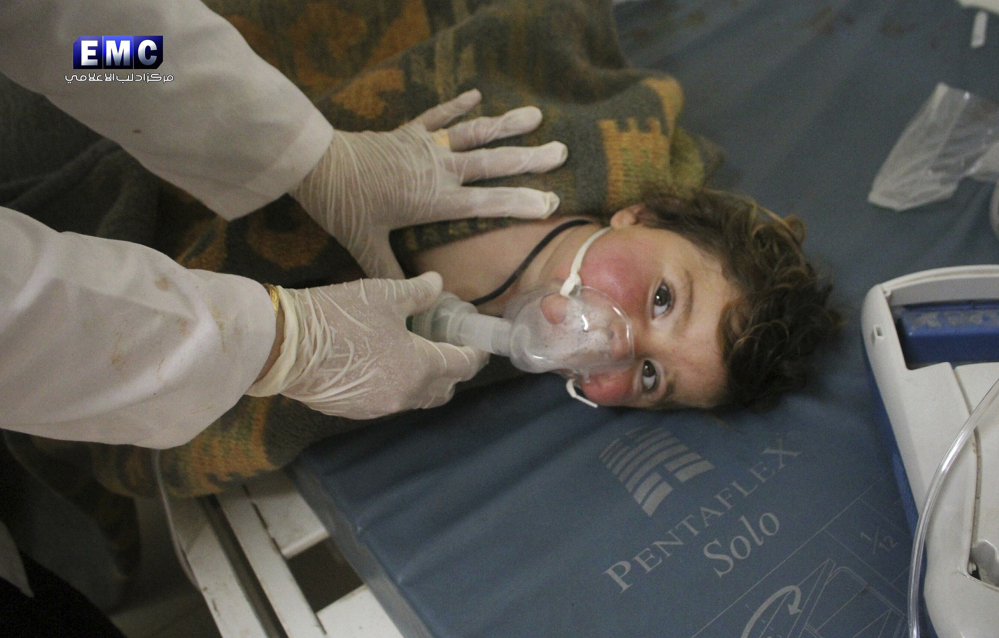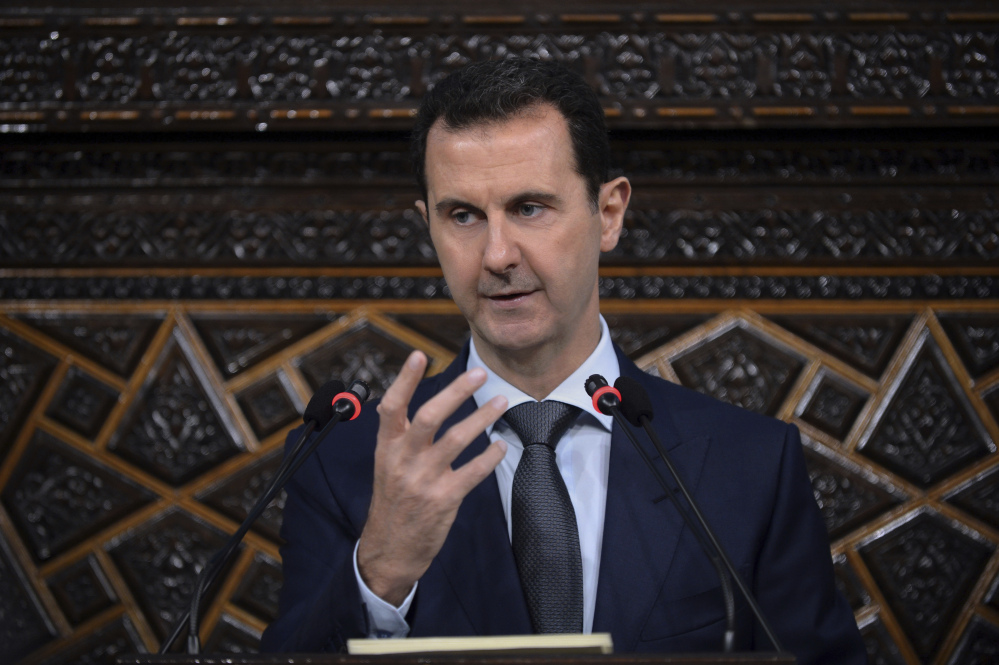BEIRUT — Three days after it was engulfed in toxic gas, the northern Syrian town of Khan Sheikhoun is a place of ghostly desolation, its streets empty and its mourning tents packed with weeping survivors.
More than 80 people were killed in the attack Tuesday on the opposition-held town, a massacre widely blamed on Syrian government forces. Residents and doctors say many of those who fled have yet to return, fearful of lingering fumes or another attack. The dead have been buried in trenches.
One of the few survivors in a house close to the center of the attack, Fatima Alyousef is haunted by images of her cousin and aunt, who died in her arms as she tried to save them.
She broke down as she recounted how she tried to help her aunt, who was gasping for air, to the roof of their two-story house to escape the fumes.
When she couldn’t lift her aunt up the stairs, she urged her uncle to come down and help. He too ended up dead, next to his sister. “I tried to lift her, I couldn’t. I am frail,” she said by phone. She took her 17-year-old cousin to the bathroom to splash her with water, but to no avail. She also died in her arms.
By the time the attack had ended, 25 members of her extended family were dead.
The chemical used in the attack was most likely the deadly nerve agent sarin, the Turkish Health Ministry said Thursday.
Autopsies conducted on three victims by Turkish doctors confirmed that chemical weapons were used in a daybreak strike, providing the most concrete evidence to date for why so many people died.
Dozens of victims of the attack were evacuated to Turkey for medical treatment. Turkish Justice Minister Bekir Bozdag said that the World Health Organization supervised the autopsies and that the results were sent to The Hague for further analysis.
In August 2013, the Syrian government’s use of sarin in an attack on a densely populated Damascus suburb killed hundreds of civilians, many as they slept.
Witnesses described Tuesday’s assault as a fog of chemicals that enveloped men, women and children, leaving many to suffocate, choke or foam at the mouth.
Syrian Foreign Minister Walid al-Moualem denied Thursday that the government had used chemical weapons in the past and maintained that it never would.
Speaking in Damascus, the capital, he rejected the findings of the Turkish investigation, saying that international inquiries conducted in the past have not been credible.
Send questions/comments to the editors.




Comments are no longer available on this story